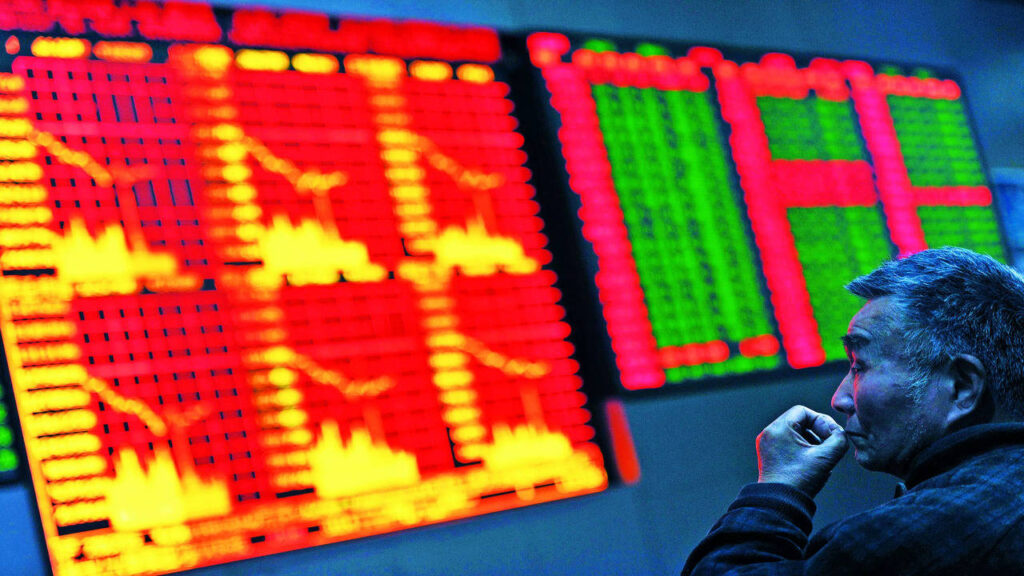By Anjan Roy
The Chinese economy is seeing deflation —that is, prices are really falling in real time— for 23 months straight. This has really raised the concerns of the Chinese political bosses which was reflected in the central bank move on Tuesday.
The central bank cut its policy interest rates by the most ever seen from the monetary authority. The Chinese central bank has also unleashed large dose of additional liquidity by paring down reserve requirements for commercial banks. Additionally, rates for existing mortgages have been cut to give boost to home purchasers.
But it looks this kind of factory gate deflation shows some structural rigidities in the economy, which economists feel could hardly be fought with simply monetary policy tools like a cut in interest rate or liquidity infusion. Data also showing little improvement in the employment trends and prospects.
Current malaise in Chinese economy is too deep and widespread to be addressed with only some financial boosts. Some ingrained rigidities and imbalances in the real economy are being addressed with doses of liquidity and interest cuts in the financial economy.
Three basic problems had plagued the Chinese economy. First, China had until recently depended on giving push to economy through heavy doses of investment for capacity creation. Large investments have created huge surplus capacity, which the domestic economy could hardly match up to.
Secondly, the Chinese policy makers had depended heavily on housing industry for the overall performance of the economy. House purchases and buildings created large cities, which now look highest towns. The housing sector has got into a rut as large property developers have gone bust, failing to deliver houses to buyers for which they have fully paid up.
The bulk of Chinese savers money had gone into housing investments, and the bust of the property companies and large stocks of unfinished and unsold new houses have depressed house prices. The savings of the people have suffered a hit and the wealth effect of a rising housing market has disappeared. This had badly hit consumer sentiments.
Here we come to the third factor for the current slide in the Chinese economy — basic problem is that consumer sentiments are low and with falling prices, consumers are not confident about making large purchase commitments like buying new houses or even costly consumer durables. Earlier in the heady days Chinese authorities had imposed various restrictions on house purchases to cool down a overheated market. These have now backfired.
Besides, broader policy changes were introduced recently when security concerns had played the uppermost over hard core economic issues. Such changes in overall policy framework is now coming home to roost and economy is going soft.
The successive policy reversals and strictures on the technology sector barons, attacks on high flying bankers and financial institutions, Communist Party’s heavy-handed interference in corporates have all combined to depress the Chinese markets and the sentiments of major players.
Now that the economy was in a free fall, various policy bodies like the Chinese central bank to the securities authorities are swinging into action to combat the economic decline and sentiments.
The Chinese central bank — PBOC— had introduced a massive stimulus running into one trillion yen (equivalent to $142 billion) on Tuesday to stop further slides in prices and encourage consumer spending. The stimulus package has come in the foreground of Chinese holiday season.
The economic authorities in the country are worried that government’s avowed GDP growth target may not be hit this year with just three months left in the year. The Chinese authorities had set a 5% growth target for the year.
The problem now is one of over supplies. The successive policy framework which relied on investment and capacity creation has generated more capacity and housing stocks than the economy could absorb. The overall policy had come to be reliant on ever increasing housing market and land sales by local authorities to fund their budgets.
But there are limits to which these policies could help. For sometime now, the Chinese economic policy makers had tried to help the housing markets. But these are not working and housing stocks are still large.
The other leg of the policy intervention has been to raise the stocks markets. The stocks are somewhat up for the present. But the market players are fearing the stocks might tank once again in the absence real time improvements in the real economy.
Successive cuts in policy rates like repo rates have released some 18 trillion yuans into the system. This is hoped to push up consumer demand as well as leave its imprint on the financial markets. The fingers should be kept crosses. Already the foreign exchange market has reacted and the yuan had recovered to its highest recent levels against the dollar. But only these changes might not buoy up the overall economy and bring it out of its slump. (IPA Service)




 Anura Dissanayake’s Election As President Of Sri Lanka Promises Positive For South Asia
Anura Dissanayake’s Election As President Of Sri Lanka Promises Positive For South Asia 